|
|
|
|
|
|
|
|
Arctic Council and Beyond, December 4, 2015 (Ottawa, Ontario, Canada). This one-day conference hosted by The Northern Institute will focus on the role of the Arctic Council as a forum for Arctic cooperation, the place of the Arctic in Canada's foreign policy and approach to the circumpolar world, the role of the Arctic in global relations in light of the increasing interest in the region by European and Asian states, and the voice of Indigenous Peoples within the Arctic Council and in shaping circumpolar countries' Arctic policies.
Paris Arctic Climate Research Strategy Meeting, December 4, 2015 (Paris, France). The purpose of this facilitated discussion is to discuss future regional, national, and international funding opportunities for interdisciplinary Arctic climate research and develop concrete ideas for such research. All disciplines across humanities, social and natural sciences, art, health, technology and others as well as representatives of research, government, civil society, business and others are encouraged to attend.
Today's Congressional Action:
The House and Senate are not in session.
|
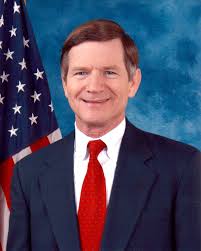 Chief of House Science Panel Picks Battle Over Climate Paper. In Paris, representatives from nearly 200 countries are discussing how to fight climate change. But in Washington, some congressional leaders continue to wage a battle over climate science itself. In a series of letters and public statements, Representative Lamar Smith, a Republican from Texas who is chairman of the House Committee on Science, Space and Technology, has accused the Obama administration and federal researchers of manipulating global warming research to pursue, as he put it on Tuesday, the administration's "suspect climate agenda." New York Times Chief of House Science Panel Picks Battle Over Climate Paper. In Paris, representatives from nearly 200 countries are discussing how to fight climate change. But in Washington, some congressional leaders continue to wage a battle over climate science itself. In a series of letters and public statements, Representative Lamar Smith, a Republican from Texas who is chairman of the House Committee on Science, Space and Technology, has accused the Obama administration and federal researchers of manipulating global warming research to pursue, as he put it on Tuesday, the administration's "suspect climate agenda." New York Times
Alaska Leaders Slam Implementation of Federal Conservation Law. Alaskan government officials, representatives of extractive industries and sportsmen's advocates yesterday slammed the Obama administration's implementation of a decades-old conservation law that handed control of 104 million acres of state land over to the federal government. The Alaska National Interest Land Conservation Act was intended as a compromise to clarify how much of the Frontier State should be permanently protected from development in return for a promise that no more land would be set aside without the approval of Congress. E&E News
Short Answers to Hard Questions About Climate Change. The issue can be overwhelming. The science is complicated. Predictions about the fate of the planet carry endless caveats and asterisks. We get it. And so, as the Paris climate talks get underway, we've provided quick answers to often-asked questions about climate change. You can submit your own questions here. New York Times
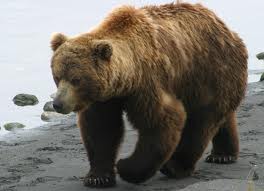 At North Slope Bone Pile, Small Grizzlies Dominate Bigger Polar Bears. North Slope grizzly bears may be little, but when it comes to grabbing morsels of bowhead whale scraps, they are mighty -- as the region's polar bears have learned the hard way. A newly published study by U.S. Fish and Wildlife Service scientists found that the smaller grizzly bears dominate the larger polar bears during foraging sessions at the bone pile left on the beach by Inupiat whalers from Kaktovik. Alaska Dispatch News At North Slope Bone Pile, Small Grizzlies Dominate Bigger Polar Bears. North Slope grizzly bears may be little, but when it comes to grabbing morsels of bowhead whale scraps, they are mighty -- as the region's polar bears have learned the hard way. A newly published study by U.S. Fish and Wildlife Service scientists found that the smaller grizzly bears dominate the larger polar bears during foraging sessions at the bone pile left on the beach by Inupiat whalers from Kaktovik. Alaska Dispatch News
Genetic Advantage Now Puts Inuit at Risk of SIDS, Research Confirms. In the past, it was an advantage for Inuit to be able to thrive on fat from sea mammals and other wildlife for energy, but, these days, that same genetic advantage may prove life-threatening today for their babies. Medical researchers believe a variant of the CPT1a enzyme offered an advantage to people who migrated to North America from Siberia 3,000 to 5,000 years ago. Their high-fat diet would have favored a different kind of metabolism, one that used fats, rather than sugars, for energy. Nunatsiaq Online
Migratory Birds Threatened by Poor Habitat Protection. Only 9 per cent of migratory birds have adequately protected habitat across their range, a new study has found. The findings, reported today in the journal Science, help explain why migratory bird numbers are declining despite global efforts to protect them, said researchers who are calling for a greater focus on the needs of migratory species in global conservation planning. Discovery News
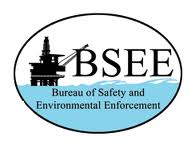 BSEE Participates in Circumpolar Gap Analysis Workgroup. The Arctic Council 's Emergency Prevention, Preparedness, and Response working group approved a project in late 2014 to study the effects of environmental factors such as wind, temperature, sea state, and ice coverage on traditional oil spill response tactics. Understanding how these environmental factors may constrain the use of mechanical recovery, in-situ burning, and dispersants, will help international emergency responders to better understand the risks posed by oil spills in high latitudes. This is the first study that unifies input from the eight Arctic nations. The current project is being co-led by the United States, Denmark, and Norway. Denmark hosted the Oct. 2015 workshop and invited 28 policy and research subject matter experts from government, non-government, and industry organizations. Maritime Professional BSEE Participates in Circumpolar Gap Analysis Workgroup. The Arctic Council 's Emergency Prevention, Preparedness, and Response working group approved a project in late 2014 to study the effects of environmental factors such as wind, temperature, sea state, and ice coverage on traditional oil spill response tactics. Understanding how these environmental factors may constrain the use of mechanical recovery, in-situ burning, and dispersants, will help international emergency responders to better understand the risks posed by oil spills in high latitudes. This is the first study that unifies input from the eight Arctic nations. The current project is being co-led by the United States, Denmark, and Norway. Denmark hosted the Oct. 2015 workshop and invited 28 policy and research subject matter experts from government, non-government, and industry organizations. Maritime Professional
|
Legislative Action
No Arctic legislation was formally considered yesterday.
|
|
Future Events
The State Department will host this event, streamed online, in coordination with the US Center for COP21.
Moderator: Christy Goldfuss, Managing Director at the White House Council on Environmental Quality
Speakers: Dr. John Holdren, Assistant to the President for Science and Technology; and Dr. Patrick Taylor, Research Scientist, National Aeronautics and Space Administration
Arctic Encounter Paris (AEP 2015), December 11-12, 2015 (Paris, France) (During the UN Convention on Climate Change - COP21). The Arctic Encounter Paris (AEP) will take place at the French Senate at Luxembourg Palace and the 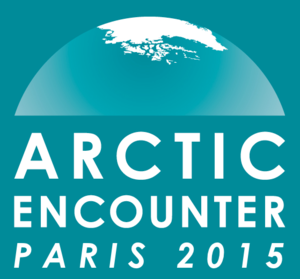 French Military College, ╔cole Militaire, in Paris, France, on the final days of the monumental United Nations Convention on Climate Change (COP21) where thousands of global citizens and government delegates will be gathered to deliberate the world's response to our changing planet in Paris. The AEP is the only Arctic policy and economics side event currently planned to take place during the UN Convention. A reception will take place following the closing panel. French Military College, ╔cole Militaire, in Paris, France, on the final days of the monumental United Nations Convention on Climate Change (COP21) where thousands of global citizens and government delegates will be gathered to deliberate the world's response to our changing planet in Paris. The AEP is the only Arctic policy and economics side event currently planned to take place during the UN Convention. A reception will take place following the closing panel.
 Fall meeting of the American Geophysical Union, December 14-18, 2015 (San Francisco, California). The 48th meeting of the union brings together nearly 24,000attendees, and lots of Arctic research results. The scientific program is here. There will be several Arctic-related "Town Hall" meetings, including those sponsored by NASA, DOE, NSF, ISAC, IARPC, and SEARCH. Fall meeting of the American Geophysical Union, December 14-18, 2015 (San Francisco, California). The 48th meeting of the union brings together nearly 24,000attendees, and lots of Arctic research results. The scientific program is here. There will be several Arctic-related "Town Hall" meetings, including those sponsored by NASA, DOE, NSF, ISAC, IARPC, and SEARCH.
The conference will be devoted to an opening of new academic semester and an upcoming 25 years cooperation between University of Nordland and Baltic State Technical University (St. Petersburg). On the second day the educational project's results "Arctic Bridge: Cooperation on PhD Education and Research Training in the field of Management in Extractive Industries in the High North" will be presented.
"Arctic Matters" day at the National Academy of Sciences, January 14th, 2016 (Washington, DC, USA) This symposium is part of an ongoing initiative of the National Academies of Science Polar Research Board to expand public understanding of why the dramatic changes affecting the Arctic region ultimately matter to us all. The agenda features engaging presentations and discussions with top Arctic science and policy experts, and displays and interactive exhibits that illustrate Arctic change and its global impacts. The event is free and open to the public. There are sponsorship opportunities, and a call for exhibitor applications (by Oct.31, 2015). Audience space is limited, so register today; and please encourage your friends, neighbors, and colleagues to participate-as our goal is to reach well beyond the small circle of specialists who typically attend Arctic-themed events in the DC area. The U.S. Arctic Research Commission is helping to sponsor this event.
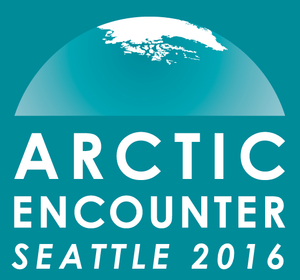 Building upon the preceding Arctic Encounter event in Paris, the third annual Arctic Encounter Symposium (AES) in Seattle, Washington will convene policymakers, industry leaders, and leading experts to confront the leading issues in Arctic policy, innovation, and development. As the largest annual Arctic policy event in the United States, the AES mission is to raise awareness, engage challenges, and develop solutions for the future of a region and a people. The two-day program includes two keynote luncheons, expert plenary sessions, break out sessions, a networking cocktail reception and seated dinner. A closing reception will take place at the conclusion of the program. Building upon the preceding Arctic Encounter event in Paris, the third annual Arctic Encounter Symposium (AES) in Seattle, Washington will convene policymakers, industry leaders, and leading experts to confront the leading issues in Arctic policy, innovation, and development. As the largest annual Arctic policy event in the United States, the AES mission is to raise awareness, engage challenges, and develop solutions for the future of a region and a people. The two-day program includes two keynote luncheons, expert plenary sessions, break out sessions, a networking cocktail reception and seated dinner. A closing reception will take place at the conclusion of the program.
2016 Arctic Frontiers, January 24-29, 2015 (Tromso, Norway).The Arctic is a global crossroad between commercial and environmental interests. The region holds substantial natural resources and many actors are investigating ways to utilise these for economic gain. Others view the Arctic as a particularly pristine and vulnerable environment and highlight the need to limit industrial development. Arctic Frontiers 2016 will discuss the balance between resource utilisation and preservation, and between industrial and environmental interests in the Arctic. Envisioning a well-planned, well-governed, and sustainable development in the Arctic, how can improved Arctic stewardship help balance environmental concerns with industrial expansion? How can the industrial footprints from future business activities be minimised? And last, but not least, what role will existing and emerging technologies play in making industrial development profitable and environmentally friendly, securing a sustainable growth scenario for Arctic communities?
16th Alaska Marine Science Symposium, January 25-29, 2016 (Anchorage, AK, USA). No detailed info yet (common guys...), but a valuable meeting, focusing on research results from the Gulf of Alaska, the Bering Sea, and the Arctic Ocean. Good, in-depth, research from Alaska's marine regions. AMSS.
** New this week** 5th Annual Fletcher Opening Arctic Conference, March 12, 2016. The Opening Arctic Conference builds on the Fletcher School's Warming Arctic International Inquiry series, to bring together high-level thought leaders from across disciplines, Fletcher's hallmark. Staged annually, Fletcher's event continues to address the foreign policy, economic, environmental and security implications of the opening Arctic, while dispelling myths.
14th IATS Seminar, June 19-25, 2016 (Bergen, Norway). The University of Bergen (UiB) is honoured to host the 14th IATS Seminar in Bergen, Norway, from Sunday 19 to Saturday 25 June 2016 in co-operation with the Network for University Co-operation Tibet-Norway, an academic network with the universities of Oslo, Bergen and Troms° as partners. The convenor is Professor Hanna Havnevik, Department of Culture Studies and Oriental Languages, University of Oslo, and Chair of the Network.
ICETECH 2016, August 15-18, 2016 (Anchorage, Alaska, USA). The Arctic Section of the Society of Naval Architects and Marine Engineers (SNAME) together with Alaska's Institute of the North (ION) will host the International Conference and Exhibition on Performance of Ships and Structures in Ice (ICETECH 16), the premiere international conference on ships and structures in ice. The conference will take place in Anchorage starting with an opening icebreaker reception on the evening of Monday, August 15, and concluding in the afternoon on Thursday August 18, with a possible workshop on Arctic EER on Friday August 19.
Inuit traditions are a repository of Inuit culture and a primary expression of Inuit identity. The theme for the 2016 Inuit Studies Conference invites Elders, knowledge-bearers, researchers, artists, policy-makers, students and others to engage in conversations about the many ways in which traditions shape understanding, while registering social and cultural change. The institutional hosts of "Inuit Traditions," Memorial University of Newfoundland and the Nunatsiavut Government, invite you to contribute to an exchange of knowledge to be held in St. John's, Newfoundland and Labrador, October 7-10, 2016. Presentations on all aspects of Inuit studies will be welcome.
|
|

  
4350 N. Fairfax Drive, Suite 510
Arlington, VA 22203, USA
External links in this publication, and on the USARC's World Wide Web site ( www.arctic.gov) do not constitute endorsement by the US Arctic Research Commission of external Web sites or the information, products or services contained therein. For other than authorized activities, the USARC does not exercise any editorial control over the information you may find at these locations. These links are provided consistent with the stated purpose of this newsletter and the USARC Web site.
|
|
|
|
|
|
|
|
|